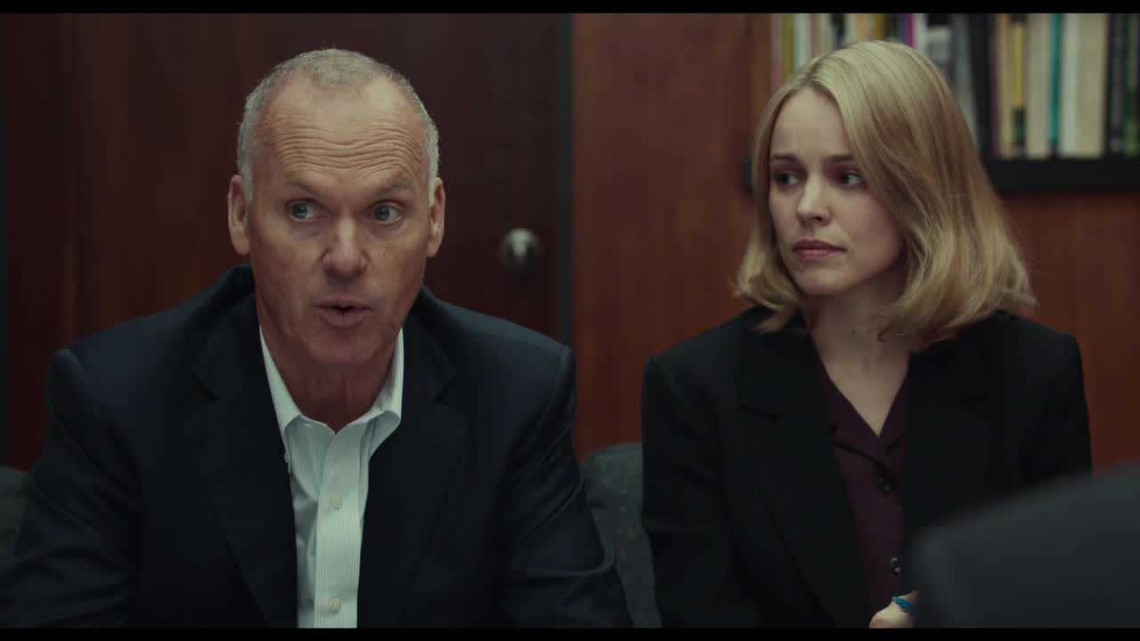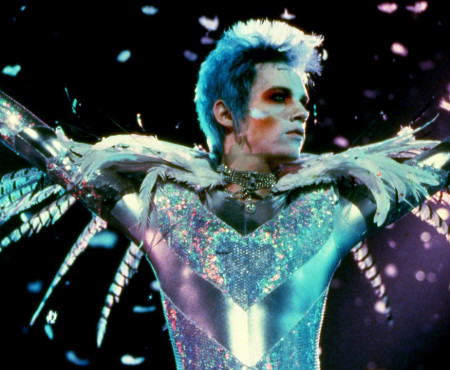In 2002, The Boston Globe’s Spotlight team—consisting of a group of top-notch investigative journalists—unveiled the deeply rooted, systemic sexual abuse of children within the Catholic Church, which led to the surfacing of many molestation cases across the USA and around the world. Watching Tom McCarthy’s Spotlight, which depicts this thorough course of action and stands as an ode to the painstaking practice of first-rate journalism (that makes a newspaper “essential to its readers,” in the words of one of the film’s characters), it is impossible not to feel romantic and nostalgic about the art and science of it all, leavened by informed instincts and well-earned luck.
The rigorous Spotlight, co-written by McCarthy and Josh Singer with the kind of journalistic discipline highlighted (rather than loudly celebrated) in the film, comes at a time of click-driven listicles and rumors making the news—as speed prevails over quality and accuracy. Living in that world today, there is undeniable beauty in following a team of journalists who get their hands dirty in chase of a groundbreaking story that aims high. Make an immediate impact on policy and service the society at large by exposing a long covered up, venomous travesty.
Spotlight is an exceptional slow burn, fueled by a consistently in-synch ensemble of actors pulling their weight on all fronts. Michael Keaton, continuing his renewed career trajectory only a year after giving a stellar performance in Birdman (and narrowly missing out on an Oscar win), plays Walter “Robby” Robinson, the head editor of the Spotlight team. On his team are Sacha Pfeiffer (an outstanding Rachel McAdams), a sensible reporter who was raised Catholic and still attends church weekly with her grandmother even after parting ways with her religion. Also in the group are Matt Carroll (Brian d’Arcy James) and the team’s most hotheaded and emotional member, Mike Rezendes (Mark Ruffalo, who is granted an otherwise quiet film’s sole explosive and loud moments).
When the seasoned editor-in-chief Marty Baron (played by Liev Schreiber with a determined restraint) joins their ranks, he challenges them to do a follow-up on a story about ex-priest John J. Geoghan, who was recently released from jail following an astounding number of sexual abuse charges under his name. Petitioning to lift the seal on all the former court transcripts of the case—a legal act everyone, including editor Ben Bradlee Jr. (John Slattery), interprets as “suing the church”—the team fastidiously follows clues, goes door to door, interviews various abuse victims and stakeholders, and hopes to find enough of a connecting tissue that not only exposes a few priests, but brings down an entire system.
One of Spotlight’s most commendable virtues—and there are many, from Masanobu Takayanagi’s attentive camerawork to Howard Shore’s terrific, emotionally-balanced score—is how resolutely non-sensationalistic it is. One can argue that Baron’s calm attitude during his first meeting with his new team, as they go around the room and uneventfully introduce themselves (a moment where Baron wins the audience’s good will and trust, along with his team’s), projects on the entire film. With only minor exceptions, there are close to no fiery exchanges here, which could have easily turned Spotlight into a parade of overwrought, aggrandizing moments with little cumulative substance. Glamorous work montages are kept at a minimum, too. The journalists’ work is slow, hard, and requires utmost dedication. The film not only knows it, but also makes the viewer live and breathe it by aspiring (and succeeding in) being the kind of brainy but accessible drama that is a rarity these days.
Inevitable comparisons have been generously and aptly made between Spotlight and Alan J. Pakula’s All the President’s Men—one of the gold standards of investigative journalism procedurals about the uncovering of the Watergate scandal. Yet seeing Spotlight today—a story that predates the effects of full-on Internet journalism—doesn’t just ignite a sense of awe, pride, appreciation, and anger. It makes one quietly grieve, too. Not just for the altered dynamics of mainstream reporting, but also for the rapidly vanishing necessity of that crisp morning paper that used to smear ink on eager hands devouring it daily, cover to cover, craving a story as immensely vital as this one.




















